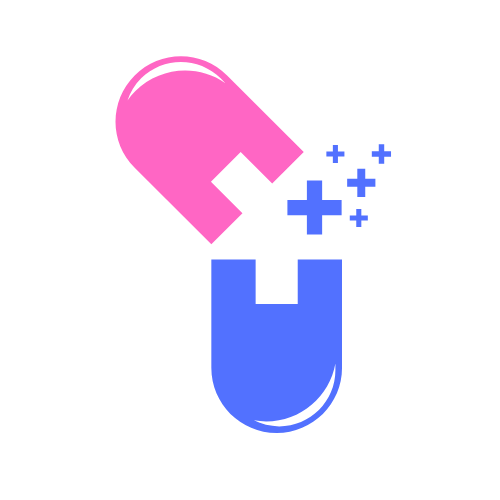
You may have heard that CoQ10 (or Coenzyme Q10, to give it its full name) is a “super-supplement” for various health conditions. And you’d be right! This powerful nutrient is essential for many bodily processes, making it a vital supplement for a wide range of health concerns. Below, we explore the numerous health benefits of CoQ10 and highlight key factors to consider when choosing a CoQ10 supplement.
What is CoQ10?
CoQ10 is a fat-soluble, vitamin-like compound produced in the body and naturally found in certain foods. It is primarily concentrated in organs with high energy demands, such as the liver, lungs, kidneys, and heart, but it is also synthesized in skeletal muscles and cell membranes.
CoQ10 plays a crucial role in cellular energy production and functions as an antioxidant, helping to protect cells and organs from damage caused by free radicals and other harmful molecules.
Free radicals are chemically unstable molecules produced as a byproduct of normal metabolic processes. Left unchecked, they can accumulate and damage DNA and cell structures. Antioxidants like CoQ10 neutralize free radicals, preventing this damage.
As we age, our natural production of CoQ10 declines, which may contribute to increased susceptibility to oxidative damage. Many researchers believe that free radicals play a role in the aging process and the development of age-related conditions such as dementia, cancer, and cardiovascular disease. Due to its benefits in combating oxidative stress and supporting overall health, CoQ10 is gaining popularity as a supplement.
What are the health benefits of CoQ10?
CoQ10 exists in two forms: ubiquinone and ubiquinol. The name reflects its ubiquity in the body and its ability to support a wide range of functions.
1. Supporting Cardiovascular Health
By reducing oxidative damage from free radicals, CoQ10 helps maintain heart health, support heart function, and lower blood pressure. Risk factors for heart disease, such as hypertension, can lead to cell damage, inflammation, and oxidative stress. Research suggests that CoQ10 supplementation may reduce this damage, improve symptoms of heart failure, and decrease the likelihood of major cardiovascular events.
2. Energy Production
CoQ10 is essential for cellular energy production. Supplementation can boost energy levels and help manage fatigue, making it beneficial for athletes, individuals experiencing age-related fatigue, and those with chronic fatigue syndrome or fibromyalgia.
3. Cognitive Support
As we age, our brain cells become less efficient at producing energy and managing free radicals. This increases the risk of inflammation and cognitive disorders such as Parkinson’s disease and dementia. CoQ10 has neuroprotective properties, helping to combat inflammation and support brain cell energy production.
4. Fertility Support
CoQ10 is crucial for energy production in sperm and egg cells. Studies suggest that supplementing with CoQ10 may improve fertility outcomes in women undergoing assisted reproductive technology (ART) procedures.
5. Migraine Management
CoQ10 is primarily found in cellular mitochondria—the tiny “batteries” that power each cell. When mitochondrial function is impaired, energy production in brain cells decreases, increasing the likelihood of migraines. Studies suggest that CoQ10 supplementation may reduce both the duration and frequency of migraines in children and adults.
6. Cancer Prevention and Management
Ongoing research indicates a promising role for CoQ10 in cancer prevention and treatment. It supports cellular energy metabolism, which can be affected by cancer treatments, and helps manage oxidative stress and inflammation associated with the disease.
7. Gum Health
Individuals with gum disease (gingivitis) often have lower levels of CoQ10. Research shows that CoQ10 supplementation, when used alongside traditional dental treatments like scaling and root planing, improves oral health outcomes more effectively than standard treatments alone.
Ubiquinone vs. Ubiquinol: What’s the Difference?
CoQ10 exists in two forms: ubiquinone and ubiquinol. Both are present in the body, but ubiquinol is the most common circulating form.
Some believe that ubiquinol is the superior form to supplement with, as it is the active version required by the body. However, research suggests that ubiquinol is converted to ubiquinone during digestion, meaning that both forms may be equally effective.
Some CoQ10 supplements claim to enhance absorption through emulsification or “liposomal” formulations, often requiring stabilizers and additives. However, these benefits are generally limited. Because CoQ10 is fat-soluble, it should always be taken with a meal that contains healthy fats to optimize absorption.
What Foods Contain CoQ10?
CoQ10 can be found in the following foods:
- Fatty fish (herring, salmon, mackerel, sardines)
- Meat, especially organ meats (heart, liver, kidney)
- Soybeans and tofu
- Nuts and seeds (pistachios, peanuts, sesame seeds)
- Vegetables (spinach, broccoli, cauliflower)
- Fruits (strawberries, oranges)
While dietary sources can contribute to CoQ10 intake, supplementation is often necessary for individuals with specific health conditions or age-related deficiencies.
CoQ10 Supplements: Dosages, Side Effects, and Interactions
Possible Side Effects
When taken as directed, most CoQ10 supplements cause no adverse effects. However, some individuals may experience mild nausea, upset stomach, loss of appetite, or diarrhea.
Medication Interactions
If you take any medications, consult your healthcare provider before using CoQ10. It may interact with anticoagulants and blood-thinning medications.
Certain medications, particularly statins (cholesterol-lowering drugs), can reduce CoQ10 levels in the body, increasing the need for supplementation.
Recommended Dosage
Most research studies use doses ranging from 90–150 mg daily. Individuals taking statins or managing specific health conditions may require a daily dose of 150 mg or more.
The safety of CoQ10 supplements during pregnancy and breastfeeding has not been well established, so it is essential to consult a doctor before use.
CoQ10 and Statin Medications
Statins lower cholesterol by blocking a key enzyme in cholesterol synthesis. However, this same pathway is also involved in CoQ10 production. As a result, statin users often experience fatigue, muscle pain, and cramps due to reduced CoQ10 levels. Studies suggest that CoQ10 supplementation can effectively reduce these muscle-related side effects.
How to Choose the Best CoQ10 Supplement
With so many CoQ10 supplements available, selecting the right one can be challenging. Consider the following factors:
- Bioavailability – What form of CoQ10 is used, and how well is it absorbed?
- Additives – Are there any unnecessary fillers, colorings, or stabilizers?
- Strength and Dosage – Lower-strength capsules may require multiple doses per day.
We hope this article has answered your questions about CoQ10 and its many health benefits!
